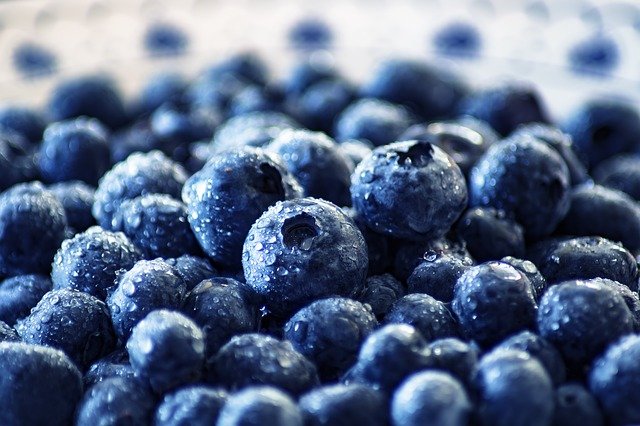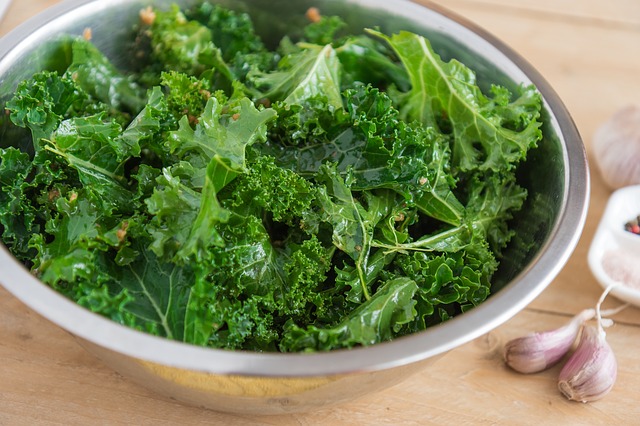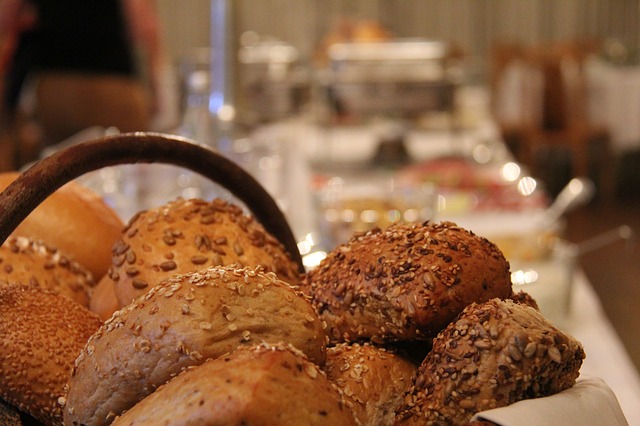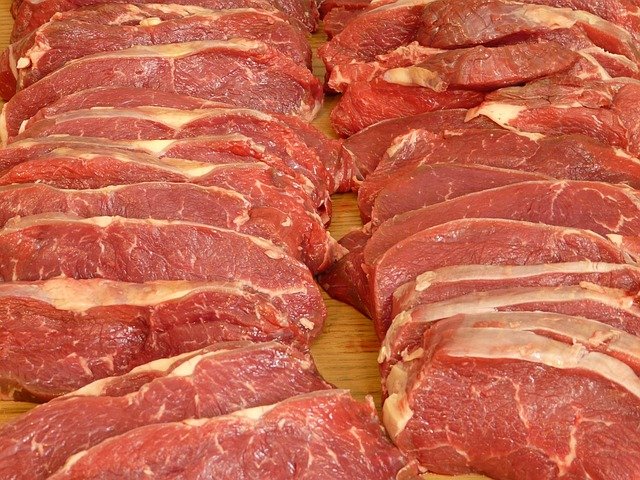National Cancer Institute 2021 updated 26 kinds of real anti-cancer foods!
- Normal Liver Cells Found to Promote Cancer Metastasis to the Liver
- Nearly 80% Complete Remission: Breakthrough in ADC Anti-Tumor Treatment
- Vaccination Against Common Diseases May Prevent Dementia!
- New Alzheimer’s Disease (AD) Diagnosis and Staging Criteria
- Breakthrough in Alzheimer’s Disease: New Nasal Spray Halts Cognitive Decline by Targeting Toxic Protein
- Can the Tap Water at the Paris Olympics be Drunk Directly?
National Cancer Institute 2021 updated 26 kinds of real anti-cancer foods!
National Cancer Institute 2021 updated 26 kinds of real anti-cancer foods! Many people think that certain foods can fight cancer. There are also various anti-cancer food information on the Internet, which also contains a lot of false information. While seeking hope, they may also be deceived and waste money. So is there really anti-cancer food?
The National Cancer Institute is a global leader in cancer prevention research and education. Based on the information in the latest “Global Diet and Cancer Research Report”, the Medical Department of Global Oncologist Network puts forward the following dietary recommendations for your reference.
National Cancer Institute updates 26 anti-cancer foods
No single food can protect you from cancer. But studies have shown that a diet rich in various vegetables, fruits, whole grains, legumes and other plant foods can help reduce the risk of many types of cancer. In laboratory studies, many minerals, vitamins and phytochemicals have shown anti-cancer effects.
- Food can directly fight cancer. In laboratory research, many individual minerals, vitamins and phytochemicals have anti-cancer effects. There is evidence that the synergy of compounds in the overall diet can provide the strongest cancer protection.
- Food can indirectly fight cancer. The AICR study of the National Cancer Institute found that excess fat in the body increases the risk of 12 types of cancer. Vegetables and fruits have relatively low calories. Whole grains and legumes are rich in fiber, which helps control weight and indirectly reduces the risk of cancer. This is one reason why AICR recommends at least two-thirds of the diet with plant-based foods.
How strong are these common foods against cancer? The following are the latest 26 anti-cancer foods announced by the National Cancer Institute in 2021. Add some to your daily diet!
Note:
- Anti-cancer ability level 1 refers to: there is strong evidence to support its anti-cancer effect.
- Anti-cancer power level II refers to: it may have a preventive effect on these cancers.
01 Apple
Apples are rich in dietary fiber and vitamin C. An apple contains 10% of the recommended daily dietary fiber and vitamin C. The intestinal flora can also use the pectin in dietary fiber to produce compounds that are beneficial to cells. The anthocyanins and triterpenoids contained in red apples have strong antioxidant capacity.
- Anti-cancer power level one: colorectal cancer
- Anti-cancer power level II: oropharyngeal cancer, laryngeal cancer, lung cancer
02 Asparagus
A lot of information about asparagus prevention and treatment of cancer is circulating on the Internet, which is a misunderstanding and excessive promotion of laboratory research results. However, this non-starchy vegetable is indeed an excellent food. It is rich in flavonols, inulin, saponin, folic acid and other ingredients, which can help reduce the risk of cancer.
- Anti-cancer power level: digestive tract tumors (oral cancer, pharyngeal and larynx cancer, esophagus cancer, lung cancer, stomach cancer and colorectal cancer)
- Anti-cancer power level two: estrogen receptor negative (ER-) breast cancer, bladder cancer
03 blueberries
Blueberries are native to North America and are now as popular among fruits as rock stars among singers. One of the main reasons is that it can enhance memory. The rich anthocyanins also give it a “unique” blue color.

Blueberries have the strongest antioxidant capacity among all fruits because they are rich in:
- Anthocyanins, catechins, quercetin, kaempferol and other flavonoids
- Ellagitannin and ellagic acid
- Pterostilbene and resveratrol
In addition, blueberries are rich in vitamin C, vitamin K, manganese, and dietary fiber.
- Anti-cancer power level one: colorectal cancer
- Anti-cancer power level II: oropharyngeal cancer, laryngeal cancer, lung cancer
04 broccoli and cruciferous vegetables
Broccoli is the most famous cruciferous vegetable. Other famous ones include Brussels sprouts, rapeseed, cabbage, cauliflower, white radish and so on.
Cruciferous vegetables are completely starch-free. Almost every cruciferous vegetable is rich in vitamin C and manganese, and some dark green vegetables also contain vitamin K. In addition, it also contains the following nutrients:
- Broccoli, Brussels sprouts, cauliflower and kale are excellent sources of folic acid and B vitamins.
- Broccoli and Brussels sprouts are good sources of dietary fiber and are rich in magnesium.
- Broccoli, Brussels sprouts and Chinese kale contain carotenoids, such as β-carotene.
- Anti-cancer power level one: colorectal cancer
- Anti-cancer power level II: oropharyngeal cancer, laryngeal cancer, lung cancer
05 Brussels sprouts
Brussels sprouts are rich in nutrients such as fiber, which may prevent cancer. These compounds enhance antioxidant and DNA defense capabilities, and promote healthy cell signaling. Brussels sprouts are rich in:
- Carotenoids
- Dietary fiber
- Vitamin C
- Folic acid
- Flavonols
- Lignin
- Glucosinolates
- Anti-cancer power level one: bowel cancer
- Anti-cancer power level two: oral cancer, pharyngeal cancer and laryngeal cancer, esophageal cancer, lung cancer, gastric cancer and colorectal cancer
06 carrots
Carrots are a very common vegetable and a common side dish on the dinner table. Carrots are rich in nutrients, and in recent years there have been reports that carrots have good anti-cancer and anti-cancer functions.
Carrots contain antioxidants and other phytochemicals. These include:
- β-carotene and α-carotene: carotenoids, our body converts into vitamin A, which is very important for improving immune function, maintaining healthy cells and activating carcinogen metabolism enzymes;
- Luteolin is a flavonoid phytochemical, which has shown antioxidant, anti-inflammatory and anti-cancer effects in laboratory studies;
- Falcarinol and other polyacetylenes are being studied for possible anti-inflammatory and other protective effects.
- Anti-cancer power level one: breast cancer
07 Cauliflower
Nutrition recommends eating more colorful foods, but white cauliflower should not be ignored. This food is rich in vitamin C, folic acid, and glucosinolates, which can help reduce the risk of cancer.
- Anti-cancer power level one: digestive tract cancer
- Anti-cancer power level two: oral cancer, pharyngeal cancer and laryngeal cancer, esophageal cancer, lung cancer, gastric cancer and colorectal cancer
08 Cherries
Studies have shown that cherries can relieve headaches and pain from arthritis and gouty arthritis. Both sour cherries and sweet cherries are rich in vitamin C and dietary fiber, as well as the mineral potassium. Tart cherries also contain vitamin A. Anthocyanins give them antioxidant capacity and bright colors.
- Anti-cancer power level one: colorectal cancer
- Anti-cancer power level II: oropharyngeal cancer, laryngeal cancer, lung cancer
09 coffee
Whether coffee can fight cancer has long been controversial, and some studies have shown that coffee can increase the risk of cancer. At present, coffee has been removed from the “2B carcinogens” list, and there is more and more evidence that coffee can reduce the risk of cancer.
The anti-cancer mechanism of coffee is still not particularly clear, and the composition of coffee will also change with the change of coffee beans. Generally speaking, it contains vitamin B and phytochemicals for antioxidant effects.
verified:
- Can be prevented: endometrial cancer, liver cancer
- Possible prevention: pancreatic cancer, kidney cancer
10 cranberries
Cranberry grows in low-lying swamps in the north. Its natural ascorbic acid effect has long been favored by sailors and sailors. Now you may know that cranberry juice can prevent urinary tract infections. But for most women, the unique flavor and color of cranberry make its meaning have already surpassed food. It is also rich in vitamin C and dietary fiber. Anthocyanins, ursolic acid, benzoic acid, etc. make it have strong antioxidant capacity.
- Anti-cancer power level one: colorectal cancer
- Anti-cancer power level II: oropharyngeal cancer, laryngeal cancer, lung cancer
11 flax seeds
Whether in the field of nutrition or medicine, flaxseed is the “darling” of researchers. Flaxseed contains high-quality magnesium, manganese, vitamin B1, dietary fiber, is rich in mineral selenium, and also provides protein and trace element copper. The lipids in flaxseed also contain omega-3 fatty acids.
Flaxseed is rich in phytoestrogens such as lignans, so many studies have focused on its ability to prevent breast cancer. In recent years, there have been studies on the role of flaxseed in prostate cancer and colon cancer.
- Anti-cancer power level one: colorectal cancer
12 garlic
Garlic belongs to the Allium genus, which also includes onions, shallots, and leeks. According to AICR’s second edition expert report and its updates, garlic may prevent colorectal cancer.
The protective effect of garlic shows a dose-response relationship. In other words, the risk of large intake is significantly reduced. AICR experts recommend garlic as part of a balanced plant-based diet.
In animal studies, the ingredients in allium vegetables slowed the development of cancer in several stages and different body parts: stomach, breast, esophagus, colon, and lungs.
13 grapefruit
Grapefruit is full of vitamins and phytochemicals. One grapefruit can increase the vitamin C needed by adults in a day. The low-calorie and sweet and sour taste is enough to make it popular all over the world.
- Anti-cancer power level one: colorectal cancer
- Anti-cancer power level II: oropharyngeal cancer, laryngeal cancer, lung cancer
14 grapes
Both grapes and grape juice are rich sources of resveratrol, a phytochemical with anti-cancer effects.
The skin of grapes contains the most resveratrol. Red wine contains resveratrol. However, the AICR research report found that alcohol is associated with an increased risk of oral cancer, throat cancer, esophageal cancer, breast cancer, colon cancer, and rectal cancer (in men), so wine is not recommended.
Studies have shown that general polyphenols and resveratrol have particularly effective antioxidant and anti-inflammatory properties. In laboratory studies, resveratrol can prevent cancers in known cells, tissues and animal models. In a series of studies, resveratrol prevented the development of skin, breast, and leukemia in all three stages of the disease (initiation, promotion, and progression).
15 kale
Studies have found that carotenoids found in dark green leafy vegetables such as kale can act as antioxidants and enhance the body’s own antioxidant defense capabilities. The vitamin C in kale is also a powerful antioxidant, helping to inhibit the formation of carcinogens. Rich in:
- Β-CAROTENE
- Dietary fiber
- Flavonols
- Folic acid
- Glucosinolates
- Carotenoids (especially β-carotene, lutein and zeaxanthin)

- Anti-cancer ability: Anaerobic digestive tract cancer, pharyngeal cancer, nasopharyngeal cancer, laryngeal cancer
- Anti-cancer power level two: breast cancer, bladder cancer
16 oranges
Oranges are one of the most popular citrus fruits that can provide antioxidants and other forms of anti-cancer protection. The special thing about oranges is that the juice is much more than the pulp, which is rich in
- Dietary fiber
- Flavanone
- Hesperene
- Vitamin C
- Anti-cancer power level one: bowel cancer
- Anti-cancer power level two: digestive tract cancer
17 legumes: dried beans, peas and lentils
Beans are rich in cellulose, phytochemicals, and protein. They can also provide high-quality folic acid and vitamin B. Can show anti-cancer effects from many aspects.
- Anti-cancer power level one: colorectal cancer
18 raspberries
Raspberries can reduce the risk of cancer. The unique combination of high dietary fiber and ellagitannin compounds plays an important role in reducing cancer risk. Individual differences in genes and intestinal flora may affect the anti-cancer activity of the berry. Raspberry contains:
- Dietary fiber
- Vitamin C
- anthocyanin
- Ellagitannin
- Phenolic acid
19 soybeans
Tofu, soy milk, soy milk, fermented beans, etc. are important sources of protein in our daily lives. In addition, soybeans are rich in phytoestrogens, dietary fiber, potassium, magnesium, copper, manganese, iron and so on. Soybeans are also a good source of polyunsaturated fatty acids omega-6 and omega-3.
However, due to the richness and variety of legume foods, some of them will damage nutrients to varying degrees during the production process, which cannot be generalized.
- Anti-cancer power level one: colorectal cancer
- Anti-cancer power level two: breast cancer, lung cancer
20 spinach
Spinach, kale, lettuce, mustard greens, chicory and Swiss chard all contain some cellulose, folic acid and various carotenoids such as lutein and zeaxanthin, as well as saponin and flavonoids.
- Anti-cancer power level one: oral cancer
- Anti-cancer power level two: breast cancer, skin cancer, colorectal cancer
21 Butternut Squash
Butternut squash produced in the United States has a different crust from zucchini (commonly known as zucchini). The skin has many different textures and flavors. Winter squash contains high-quality vitamin A, rich vitamin C, carotenoids, potassium and dietary fiber.
- Anti-cancer power level one: colorectal cancer
- Anti-cancer power level II: oropharyngeal cancer, laryngeal cancer, lung cancer
22 strawberries
Strawberries are rich in vitamin C, dietary fiber, anthocyanins, phenolic acids (including ellagic acid), butyl phenyl ether (mainly resveratrol) and so on.
There is evidence that dietary fiber can reduce the risk of gastrointestinal cancers (mouth, pharynx, nasopharynx, throat, esophagus, lung cancer, stomach cancer, and colorectal cancer), and may reduce the risk of lung cancer in people who smoke or have smoked.
23 tea
The tea recommended here is white tea, green tea, black tea, and oolong tea that are traditionally derived from plant leaves, but not herbal teas derived from rhizomes, seeds, flowers, etc. The nutrients in tea also depend on the type of tea. Generally speaking, tea contains caffeine, catechol, thearubigen and theaflavins.
Research has focused more on green tea and cancer, because green tea is rich in epigallocatechin gallate (EGCG). However, by reviewing the past literature, AICR has not yet given a definite conclusion on its prevention of cancer.
24 tomatoes
Tomatoes have always attracted the special attention of prostate cancer researchers, because lycopene and its related compounds tend to be concentrated in the prostate tissue. Lycopene is a powerful antioxidant that has shown anti-cancer potential in various laboratory studies and can prevent the proliferation of several types of cancer cells, including prostate cancer, breast cancer, lung cancer and endometrial cancer.
The second edition of the Diet, Nutrition, and Exercise report found substantial evidence that foods containing lycopene can prevent prostate cancer. They contain fiber and are associated with a lower risk of colorectal cancer. AICR emphasizes the importance of eating a variety of plant-based foods to ensure maximum prevention of cancer development. No single food can effectively reduce the risk of cancer.
25 walnuts
Among all nut foods, the anti-cancer effect of walnuts rich in omega-3 has been studied the most. Linolenic acid, ellagic acid, and flavonoids in walnuts are all popular anti-cancer ingredients in the laboratory. Animal experiments have shown that they can slow the progression of breast and prostate cancer. There are dozens of studies exploring the anti-cancer effects of walnuts. However, AICR believes that the evidence to prove the anti-cancer effect of nuts is limited and does not give an exact conclusion.
26 whole grains

Including brown rice, oatmeal, corn, whole wheat bread, barley, buckwheat, dry wheat, millet, sorghum, etc. Whole wheat food contains complete nutrients, including dietary fiber bran, starchy endosperm and so on. The so many nutrients in whole-grain food make it difficult for researchers to explain how it fights cancer and which ingredients can fight cancer.
- Anti-cancer power level one: colorectal cancer
Foods that need to be restricted
01. Alcohol

Studies have shown that drinking alcohol increases the risk of various cancers. The chance of alcoholic beverages causing various cancers depends on the amount and frequency of alcohol consumption.
Many people think that resveratrol in red wine is good for the body, but in fact, it is the alcohol in it that really causes cancer risk. Therefore, whether it is beer, wine or white wine, it will increase the risk of cancer. Try to drop it. Alcohol does not stick. As for those who want to maintain health through resveratrol, they can be obtained from the fruits and vegetables in the above anti-cancer food.
There is ample evidence that drinking alcohol increases the risk of developing the following cancers:
- Breast cancer
- Colorectal cancer
- Esophageal cancer
- Liver cancer
- Oral cancer, pharyngeal cancer, and larynx cancer
- Stomach cancer
Suggestion: no drink
02. Processed meat

Nitrate or nitrite used in smoked and pickled foods can increase the risk of colorectal cancer.
Processed meats include bacon, sausages, hot dogs, pepperoni, ham, corned beef, etc. If you often add these meats to breakfast, sandwiches or grilled meats, it is best to consider replacing them. There is strong evidence that ingestion:
Processed meat increases the risk of colorectal cancer
Cantonese-style salted fish increases the risk of nasopharyngeal cancer
Preserved foods increase the risk of stomach cancer
03. Red meat

There is ample evidence that eating red meat (beef, pork, lamb) increases the risk of colorectal cancer. The reason is that red meat has more heme iron than poultry or seafood meat. This special form of iron can cause the production of free radicals, damage DNA and promote the formation of nitroso compounds, which can cause cancer in the intestines Damage.
Recommendation: Limit red meat. If you eat red meat, limit it to three servings per week. Three servings are equivalent to about 350-500 grams (about 12-18 ounces) of cooked weight. Eat less processed meats.
04 Sugary drinks

Studies have shown that sugar-sweetened beverages are the cause of weight gain, overweight and obesity. Being overweight can increase the risk of twelve cancers. Limiting sugary sodas, energy drinks and other sugary drinks can help avoid overweight, obesity and weight gain, thereby reducing the risk of cancer.
There is strong evidence that overweight or obesity in adulthood increases the risk of heart disease
- Oral cancer, pharynx cancer, and larynx cancer
- Esophageal cancer (adenocarcinoma)
- Gastric cancer (cardia)
- Pancreatic cancer
- Gallbladder cancer
- Liver cancer
- Colorectal cancer
- Breast cancer (postmenopausal)
- Ovarian cancer
- Endometrial cancer
- Prostate cancer (advanced)
- Kidney Cancer
For patients, a balanced diet is more important than various supplements. Change your eating habits quickly and add these anti-cancer natural foods to your daily diet.
(source:internet, reference only)
Disclaimer of medicaltrend.org
Important Note: The information provided is for informational purposes only and should not be considered as medical advice.



